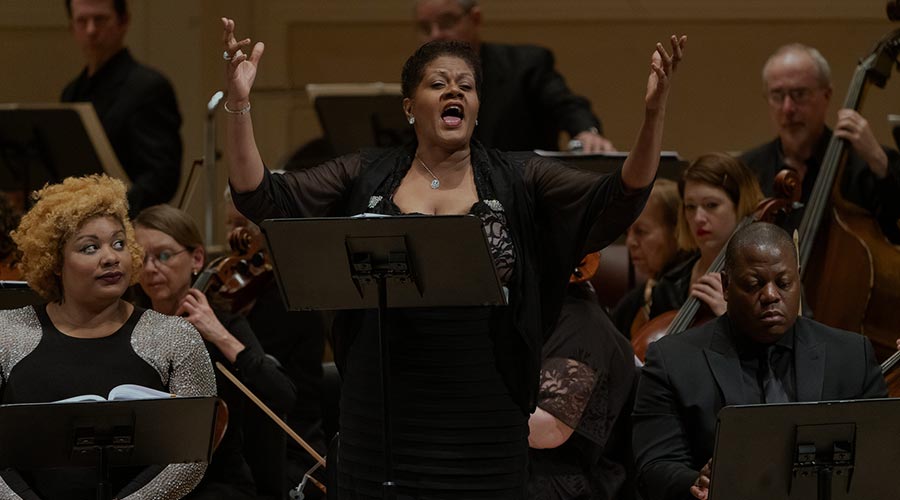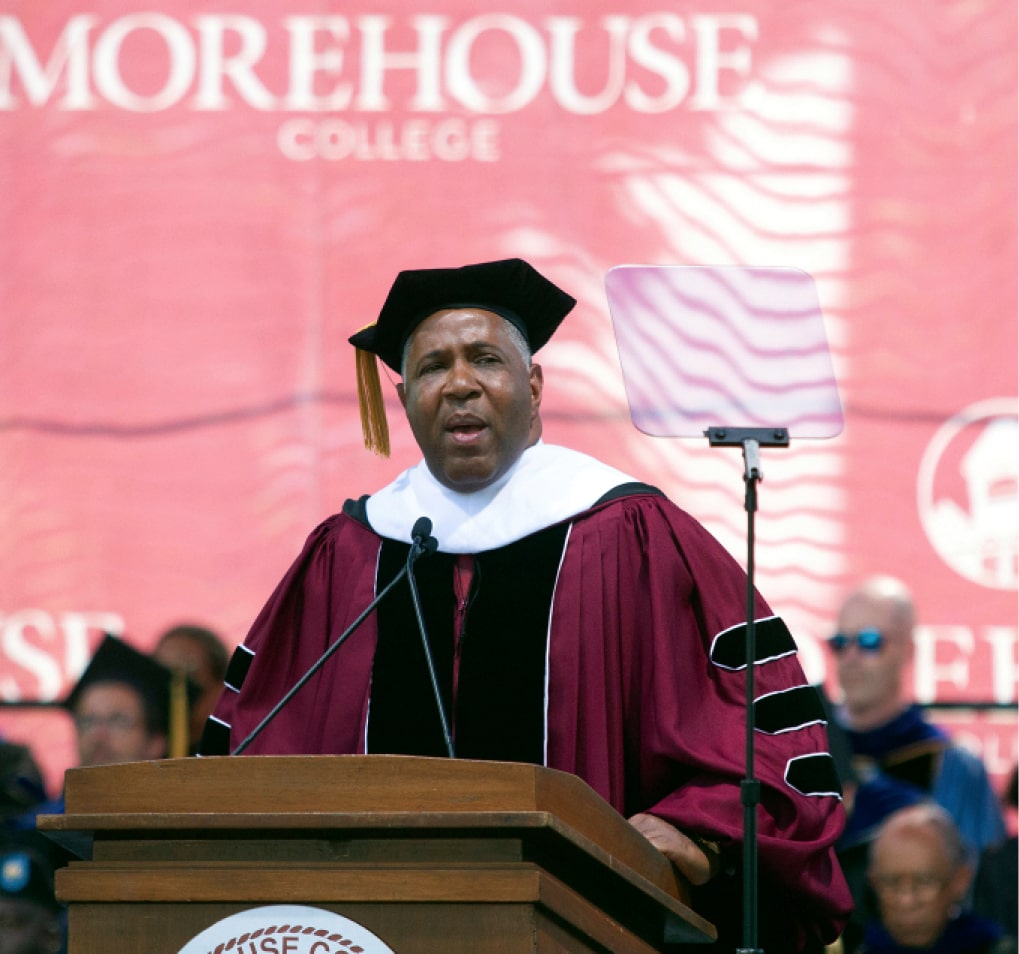A scene from the 2019 production of Bohuslav Martinu’s “Julietta” at Carnegie Hall” by Peter Matthews is licensed under CC BY 2.0
African American and Latino people represent just 1.8% and 2.5% of classical musicians in U.S. orchestras, according to the League of American Orchestras. Increasing diversity within classical music is critically important, and Carnegie Hall – one of the most prominent music venues in New York – is committed to that mission. In a statement, Robert F. Smith, Carnegie Hall Chairman of the Board of Trustees, and Clive Gillinson, Carnegie Hall’s Executive and Artistic Director, wrote that: “a central commitment to diversity, equity, inclusion, and accessibility has long been fundamental to Carnegie Hall’s mission-driven work.”
In that vein, Carnegie Hall announced its programming for the 2022-2023 season – which aims to uplift underrepresented performers like vocalist Davóne Tines and the Grammy-award nominated Harlem Quartet. Carnegie Hall is also expanding its offerings with events like Music as Medicine.
In 2020, Music as Medicine organized an online performance of health professionals in the height of the health and economic crisis, recognizing medical practitioners that find solace in playing and listening to music. The concert featured classical pieces performed by medical professionals and musicians of Vivaldi and Tchaikovsky. The artists’ pre-recorded performances were mixed by audio engineers and video producers for the presentation. Esther Choo, M.D, MPH, Professor of Emergency Medicine at Oregon Health and Science University and a speaker at the Music as Medicine event said: “healthcare workers are physically, emotionally, and spiritually exhausted right now — music uplifts, it provides healing and connection.”
Robert F. Smith’s Work to Diversify the Arts
Smith has prioritized diversity as the first African American to serve as Carnegie Hall’s Chairman of the Board of Trustees, saying that in his role, he seeks to build on “the Hall’s already considerable outreach efforts into communities to reach our next generation of music lovers and performers.” Carnegie collaborates with the Sphinx Organization, a “social justice organization dedicated to transforming lives through the power of diversity in the arts,” to produce multiple events throughout the year. As an organization that has worked to increase diversity within classical music for 25 years, Sphinx plays a critical role in helping Carnegie achieve its goal of ensuring their events are more representative. Sphinx and Carnegie Hall partner on Sphinx LEAD, a “leadership program designed to evolve the industry landscape” by mentoring and training future leaders of color in the classical music industry. Members of the Carnegie Hall community, like the Director of Artistic Planning Abhijit Sengupta, have participated in Sphinx’s annual SphinxConnect conference and competition, which is billed as “largest and longest-standing convening dedicated to diversity and inclusion in classical music”. And on October 13th, 2022, the Sphinx Virtuosi, the organization’s traveling chamber orchestra of 18 Black and Latino musicians, will return to Carnegie Hall to perform their annual concert.
Learn more about Carnegie Hall’s programming for the 2022-2023 season, as well as the talented Sphinx Virtuosi.







